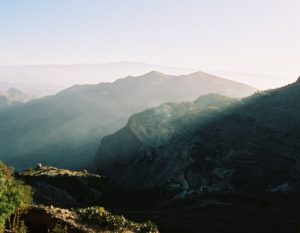As we move into the US holiday season, my wife, Shirley, has the following contribution. Her words are a prelude to our upcoming memoir, Faith in Crisis – How God Shows Up When You Need Him Most.
At this time of the year our thoughts turn to thankfulness. We encourage children to think about what they are thankful for – food, a home, parents who love them, various family members, even the privilege of an education.
As adults we can take nothing for granted. I have felt challenged to see how God has been in every detail of my life from the very beginning to draw me to Himself. I would challenge each one of us to look back on our lives and identify the Lord’s guidance and protection.
Each of us has a story to tell. I worked as a social worker with the underprivileged and at one point with sexually abused girls, so I have heard many stories. I would like to share just one aspect of my story of how God prepared us for our Elizabeth.
I never knew my parents, but my grandmother brought me up in her Christian home. She told me I had a little brother that only lived a few days after birth. This was only a reminder to me when the question came up whenever I was pregnant if there had been any disabilities at birth in my family.
Jeremiah 29:11 states: “For I know the thoughts that I think toward you, says the Lord, thoughts of peace and not of evil, to give you a future and a hope.
When we lived in Kuwait there was a little girl who had been a twin. Her parents abused her and caused her to have a head injury and therefore very limited intelligence. She was in the hospital where Jim worked. Our children went to visit her and although she was Muslim the hospital granted us special permission to take her to our home. She would stay with us days at a time. Soon we came to regard her as part of our family and developed a special love for her. When it was time for us to return to Augusta for summer break we were sadly informed that we could not take her out of the country. Since she was Muslim it was impossible for us to adopt her. After the war with Iraq our Kuwaiti friends told us that her biologic parents killed her.
We thought about adopting a special needs baby but I told the adoption agency I could not handle a child who could not walk or one that was mentally challenged.
When we heard about a baby with one arm and crossed eyes this seemed fine because these things could be fixed. However, upon her arrival we realized that the problems were much greater than this. Although we wondered how even with the Lord I could ever handle this child, we clung to Romans 8:28: “And we know that all things work together for good to those who love God, to those who are called according to His purpose.”
What a blessing the Lord has given us in this child. Her simple joy and trust in the Lord and enthusiasm for life pushes me ahead every day. The Lord had certainly brought good above anything I could ever ask or think. She tells us her job in life is: “to tell others about Christ. ”
Although many cannot understand Elizabeth when she speaks, her love for others and concern for them is obvious. If there is an accident on the road or an emergency vehicle, she never fails to want to pray for them. I admit I am sometimes embarrassed when she wants to pray for complete strangers who have expressed a need or might just have a cast on a part of their body. When I am with a friend who might express a concern or need, she is always ready to tell them a Bible verse that would meet that concern. God has revealed His glory through all his creation. Praise the lord for His sovereignty and His great love for us.














